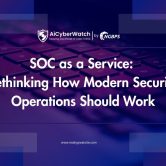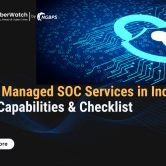Phishing attacks are one of the most common and dangerous online threats today. These attacks involve tricking people or organizations into revealing sensitive information or doing something harmful. Phishing can range from simple scams targeting individuals to more complex attacks aimed at businesses. It’s become a major concern for cybersecurity. In this blog, we’ll explore how these scams are designed and why it’s so important to use tools like Social Engineering Assessments to protect ourselves and reduce the risks.
What is Phishing?
Phishing is a type of cyberattack where criminals pretend to be trusted organizations or individuals in order to trick victims into sharing sensitive information, like passwords, credit card details, or important business data. These attacks typically happen through emails, text messages, or fake websites, which are designed to look legitimate and fool people into giving up their personal information.
How Attackers Target Businesses
Businesses, especially those handling sensitive data, are prime targets for phishing scams. Common tactics include:
- Business Email Compromise (BEC): Attackers spoof or hack into email accounts of executives or employees to request payments or sensitive information.
- Spear Phishing: This is a more targeted form of phishing, where attackers send personalized emails to specific individuals within an organization. They often gather detailed information about the target beforehand, making the scam appear more convincing and increasing the likelihood of success.
- Credential Harvesting: In this type of attack, fraudsters create fake login pages that look like the real ones from trusted platforms. These fake pages are then sent to employees, tricking them into entering their usernames and passwords, which the attackers can steal and misuse.
- Supply Chain Phishing: cybercriminals target third-party vendors or partners that work with an organization. By compromising the vendor’s system, they can gain access to the organization’s network, often bypassing security measures and causing significant damage.
How Attackers Target Individuals
While businesses face sophisticated phishing attacks, individuals are also at risk, often through simpler but equally harmful tactics, such as:
- Fake Payment Requests: Attackers impersonate friends, family, or financial institutions, claiming that an urgent payment is needed.
- Lottery or Reward Scams: Victims are told they’ve won a prize and are asked to provide personal information or pay fees to claim it.
- Urgent Account Alerts: Fraudulent emails warn that accounts will be locked or disabled unless immediate action is taken, tricking victims into clicking on harmful links.
- Social Media Phishing: Attackers pretend to be friends, colleagues, or even service providers on social media to steal information or spread malicious software.
The Role of Social Engineering in Phishing Attacks
Phishing attacks often rely on social engineering, which involves manipulating human behaviour to bypass security systems. Instead of just hacking through technical barriers, attackers play on emotions like fear, urgency, and curiosity to get victims to act quickly—often without thinking. By triggering these emotions, attackers make it harder for people to spot the scam and think critically before taking action.
Key tactics include:
- Impersonation: Pretending to be a trusted authority or colleague.
- Urgency: Creating a sense of time pressure to bypass critical thinking.
- Familiarity: Referencing personal or organizational details to build trust.
How Social Engineering Assessments Can Help
Social Engineering Assessments are proactive steps businesses can take to evaluate how vulnerable they are to phishing attacks. These assessments simulate real-life phishing scenarios to test employees’ awareness and identify any security weaknesses.
Benefits include:
- Enhanced Awareness: Employees become more skilled at recognizing phishing tactics and learn how to respond correctly.
- Identifying Weak Links: These assessments help pinpoint departments or individuals who may be more likely to fall for scams, allowing businesses to focus on training those areas.
- Improved Policies: The results can guide the development of stronger communication protocols and better authentication processes, making it harder for attackers to succeed.
- Continuous Improvement: By conducting regular assessments, organizations can stay ahead of emerging threats and ensure their defences remain strong.
Best Practices to Prevent Phishing Attacks
For Businesses:
- Conduct Social Engineering Assessments: Regularly test your employees with simulated phishing attacks to strengthen your first line of defines.
- Deploy Advanced Email Security Solutions: Use email filtering tools to block suspicious or malicious emails before they even reach employees’ inboxes.
- Educate Employees: Provide ongoing training to help staff recognize phishing attempts and understand how to handle them.
- Implement Multi-Factor Authentication (MFA): Add an extra layer of security to sensitive accounts by requiring more than just a password—like a code sent to a phone or an
For Individuals:
- Verify Suspicious Emails or Messages: Contact the source directly through official channels.
- Avoid Clicking Unknown Links: Always hover over links to check their legitimacy.
- Use Strong Passwords: Employ unique passwords for each account and enable MFA.
- Be Wary of Urgent Requests: Take time to verify any message that demands immediate action.
Conclusion
Phishing scams continue to pose a serious threat to both businesses and individuals, using clever social engineering tactics to deceive victims. To effectively combat these attacks, a well-rounded approach is needed—one that includes Social Engineering Assessments, ongoing employee education, and strong technical defences. By staying alert and taking proactive steps, organizations and individuals can significantly lower the risk of falling victim to phishing.
Need help protecting your organization from phishing attacks?
Contact us for customized Social Engineering Assessments and cybersecurity solutions tailored to safeguard your business against evolving threats.




